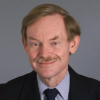Robert Zoellick

Robert Zoellick
Robert Bruce Zoellickis an American banker who was the eleventh president of the World Bank, a position he held from July 1, 2007 to June 30, 2012. He was previously a managing director of Goldman Sachs, United States Deputy Secretary of Stateand U.S. Trade Representative, from February 7, 2001 until February 22, 2005. Zoellick has been a senior fellow at his alma mater Harvard Kennedy School since retirement from the World Bank in July 1, 2012...
NationalityAmerican
ProfessionPolitician
Date of Birth25 July 1953
CityNaperville, IL
CountryUnited States of America
One of the most important assets for the SLM is the support of countries around the world. But to maintain that support, they have to respect the ceasefire. They can't follow a path of violence, and they have to come up with a common negotiating position,
So, I actually think there's some commonality of interest on this topic.
Some countries will now need to decide whether they want to make a point, or whether they want to make progress,
My concluding point with the SLM was that we want to help them, but to help them they need to help us be able to deal with the united movement,
There's going to be no deal here with Aleman on the part of the United States, ... a convicted criminal.
The United States has no closer alliance partner than Australia, ... Our special partnership is built on the solid foundation of common values and our shared commitment to a free, secure, and prosperous world.
The terrorists deliberately chose the World Trade towers as their target. While their blow toppled the towers, it cannot and will not shake the foundation of world trade and freedom. Our response has to counter fear and panic, and counter it with free trade.
It would be a grave mistake to permit any one country to veto America's drive for global free trade.
I've always believed that openness is America's trump card.
focuses on the interests of energy, both energy security, but also energy efficiency. It focuses on the vital role of energy in development and it also focuses on the issues of climate change. It opens up the possibilities for developing, deploying, and transferring cleaner, more efficient technologies.
The U.S. presence, both in security and economic terms, is a daily fact of life as people saw on December 26 (when the U.S. mobilized its military to provide aid to tsunami victims). We have many ways in which we interact with the region,
the most significant immediate cut in industrial tariffs ever achieved in a U.S. free-trade agreement.
As it turns out, the Chinese are not all that interested in having huge subsidies for the agriculture anyway because as we've discovered in our country and others, these become rather expensive,
Any spark could set off a wildfire, so all of the key parties have important work to do to keep things on track,